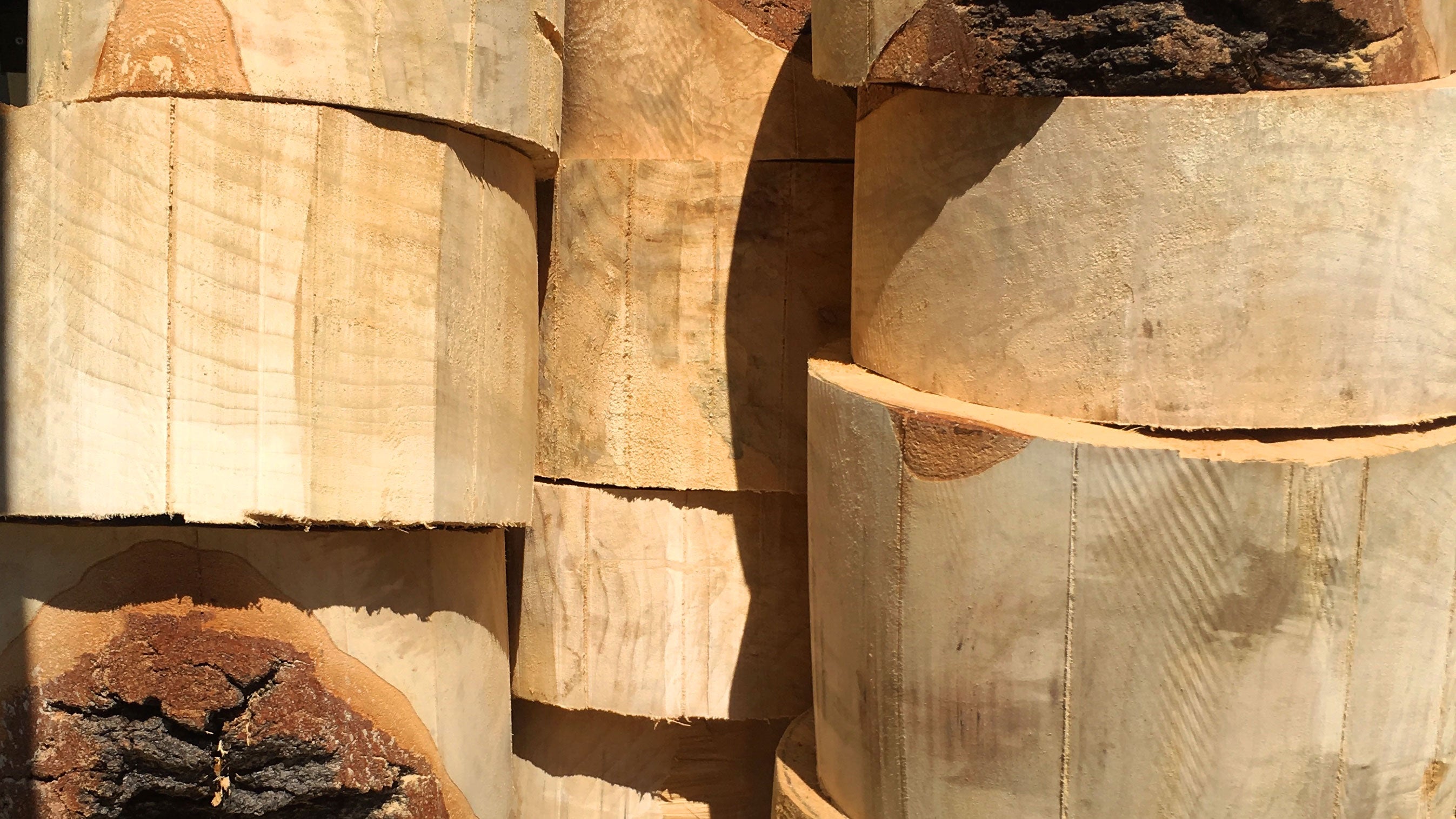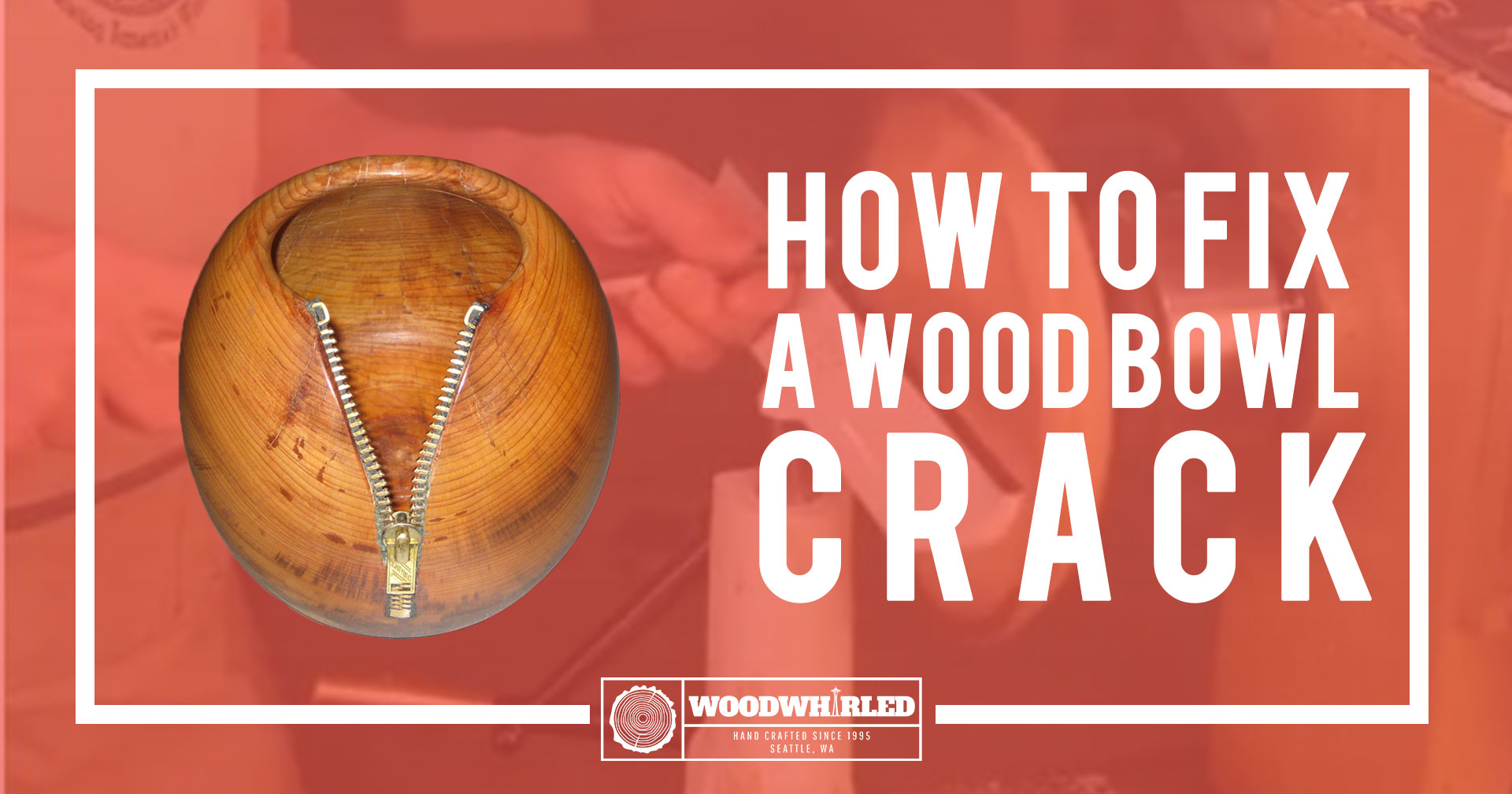History of Woodturning
Woodturning 101... WoodWhirled Academy
Welcome to the beginning of a new adventure. Woodturning is ancient, there are depiction of men working at a lathe in the pyramids of Egypt, there are references to wood turners written in cuneiform tablets dating to the ancient Sumerians. The basic techniques have remained unchanged for literally thousands of years... it is only the tools that have changed, and most of this change has taken place within the past 200 years with the development of new materials.

Woodturning has developed, within the past 25 years, into the fastest growing craft in the world. This is due in large part to better tools, availability of machinery and tools, education and organizations willing and eager to assist those interested in having fun creating beautiful and useful objects from everyday materials. Quite often you will find, the best materials for woodturning are those which other wood craftsmen are reluctant to use, such as burls, highly figured or spalted woods and crotch woods.
The first turning tools were probably of stone, and the lathe consisted of rope twisted around a bit of wood held in place between two centers. Rotation force was provided by fastening the rope between a sapling and a form of treadle. The tool could cut only when the wood was revolving into the tool edge, but this was still a very efficient method of work, and is in fact in use today in some places. With the development of brass and bronze, tools improved markedly, and even more so with the advent of the Iron Age.

Early tools were forms of knives or chisels; scrapers of various forms were next developed. The last, our latest, tool to come into being was the gouge; and this was probably sometime in the 1400's.
With the advent of steel making, a lot began to happen in the wold: Machinery improved, weapons improved, and woodturning improved. Early tools were made of high-carbon steel, and economy tools are still using this material. These tools sharpen easily, bit do not hold an edge for vey long, and are very prone to loss of temper if subjected to machine sharpening. Because of this, these tools are not held in high regard by modern turners. High Speed steel was developed during WWII, and has had a tremendous impact on the Woodturning world. These alloys hold an edge form 4 to 20 times longer than carbon steels, and are rated as M2, M4, A11, 2040, 2060, and V15, with V15 currently enjoying the status as hardest and longest lasting.
Woodturning is something like music, in that the more you practice, the better you become, and the more education you receive, through classes, seminars and clubs, the more varied and expansive your turning repertoire will become. Local clubs are always a good source for education, as many clubs will have mentoring program; national organizations are excellent sources for contacts and seminars as well.

Don't forget to subscribe to our bog if you want to receive our posts directly to your email and be the first to know when do we publish new content.
On our next blog well review the Parts of the Lathe.
If you like it share it with your friends.
Thanks for reading!





37 comments
KRYSTEL 07/20
blairebble@gmail.com
SPORTSTOTO7.COM
카지노사이트 https://sportstoto7.com/
바카라사이트 https://sportstoto7.com/
온라인카지노 https://sportstoto7.com/
온라인바카라 https://sportstoto7.com/
온라인슬롯사이트 https://sportstoto7.com/
카지노사이트게임 https://sportstoto7.com/
카지노사이트검증 https://sportstoto7.com/
카지노사이트추천 https://sportstoto7.com/
안전카지노사이트 https://sportstoto7.com/
안전카지노사이트도메인 https://sportstoto7.com/
안전한 카지노사이트 추천 https://sportstoto7.com/
바카라사이트게임 https://sportstoto7.com/
바카라사이트검증 https://sportstoto7.com/
바카라사이트추천 https://sportstoto7.com/
안전바카라사이트 https://sportstoto7.com/
안전바카라사이트도메인 https://sportstoto7.com/
안전한 바카라사이트 추천 https://sportstoto7.com/
http://www.erotikplatz.at/redirect.php?id=939&mode=fuhrer&url=https://sportstoto7.com/
http://www.imsnet.at/LangChange.aspx?uri=https://sportstoto7.com/
https://www.kath-kirche-kaernten.at/pfarren/pfarre/C3014?URL=https://sportstoto7.com/
http://gs.matzendorf.at/includes/linkaufruf.asp?art=kapitel&link=https://sportstoto7.com/
http://www.nuttenzone.at/jump.php?url=https://sportstoto7.com/
https://cms.oeav-events.at/wGlobal/nessyEDVapps/layout/fancybox.php?link=https://sportstoto7.com/
https://www.oebb.at/nightjet_newsletter/tc/xxxx?url=https://sportstoto7.com/
https://www.gardensonline.com.au/Global/Players/YouTube.aspx?VideoURL=https://sportstoto7.com/
http://www2.golflink.com.au/out.aspx?frm=gglcmicrosite&target=https://sportstoto7.com/
http://www2.golflink.com.au/out.aspx?frm=logo&target=https://sportstoto7.com/
https://www.golfselect.com.au/redirect?activityType_cd=WEB-LINK&course_id=2568&tgturl=https://sportstoto7.com/
https://www.malcolmturnbull.com.au/?URL=https://sportstoto7.com/
http://march-hare.com.au/library/default.asp?PP=/library/toc/lib-12.xml&tocPath=&URL=https://https://sportstoto7.com/
https://www.oliverhume.com.au/enquiry/thank-you/?redirectTo=https://sportstoto7.com/
http://www.parents-guide-illawarra.com.au/Redirect.aspx?destination=https://https://sportstoto7.com/
https://ramset.com.au/Document/Url/?url=https://sportstoto7.com/
https://ramset.com.au/document/url/?url=https://sportstoto7.com/
http://rubyconnection.com.au/umbraco/newsletterstudio/tracking/trackclick.aspx?url=https://sportstoto7.com/
http://southburnett.com.au/movies/movie.php?url=https://sportstoto7.com/
https://www.vicsport.com.au/analytics/outbound?url=https://sportstoto7.com/
https://www.vwwatercooled.com.au/forums/redirect-to/?redirect=https://https://sportstoto7.com/
http://clients3.weblink.com.au/clients/aluminalimited/priceframe1.aspx?link=https://sportstoto7.com/
http://fedorasrv.com/link3/link3.cgi?mode=cnt&hp=https://sportstoto7.com/
http://www.rss.geodles.com/fwd.php?url=https://sportstoto7.com/
http://imperialoptical.com/news-redirect.aspx?url=https://sportstoto7.com/
https://www.interecm.com/interecm/tracker?op=click&id=5204.db2&url=https://sportstoto7.com/
http://kenchow.keensdesign.com/out.php?url=https://sportstoto7.com/
http://www.kompassdiamonds.com/WebKompassDiamonds/en/redirect?url=https://sportstoto7.com/
http://landbidz.com/redirect.asp?url=https://sportstoto7.com/
http://www.leefleming.com/neurotwitch/index.php?URL=https://sportstoto7.com/
http://sns.lilyenglish.com/link.php?url=https://sportstoto7.com/
http://lolataboo.com/out.php?https://sportstoto7.com/
http://www.mietenundkaufen.com/cgi-bin/linklist/links.pl?action=redirect&id=44828&URL=https://sportstoto7.com/
http://sp.ojrz.com/out.html?id=tometuma&go=https://sportstoto7.com/
http://forum.pokercollectif.com/redirect-to/?redirect=https://sportstoto7.com/
http://www.ra2d.com/directory/redirect.asp?id=596&url=https://sportstoto7.com/
https://relationshiphq.com/french.php?u=https://sportstoto7.com/
http://www.reliablesoftware.com/DasBlog/ct.ashx?id=4ff24f38-3e75-4e01-9755-92e5a585806c&url=https://sportstoto7.com/
http://m.shopinelpaso.com/redirect.aspx?url=https://sportstoto7.com/
http://m.shopinsanantonio.com/redirect.aspx?url=https://sportstoto7.com/
http://m.shopinsanjose.com/redirect.aspx?url=https://sportstoto7.com/
http://suek.com/bitrix/rk.php?goto=https://sportstoto7.com/
https://throttlecrm.com/resources/webcomponents/link.php?realm=aftermarket&dealergroup=A5002T&link=https://sportstoto7.com/
http://tstz.com/link.php?url=https://sportstoto7.com/
https://www.turnerdrake.com/blog/ct.ashx?id=3791bd86-2a35-4466-92ac-551acb587cea&url=https://sportstoto7.com/
http://hui.zuanshi.com/link.php?url=https://sportstoto7.com/
https://www.weingut-villa.de/k2/System/Language/en/?goto=https://sportstoto7.com/
http://gamlihandil.fo/url.asp?url=https://sportstoto7.com/
http://www.xata.co.il/redirect.php?url=https://sportstoto7.com/
http://www.resort-planning.co.jp/link/cutlinks/rank.php?url=https://sportstoto7.com/
http://gonzo.kz/banner/redirect?url=https://sportstoto7.com/
http://redirect.me/?https://sportstoto7.com/
http://light.anatoto.net/out.cgi?id=01178&url=https://sportstoto7.com/
http://tv.e-area.net/sm/out.cgi?id=10682&url=https://sportstoto7.com/
http://www.h-paradise.net/mkr1/out.cgi?id=01010&go=https://sportstoto7.com/
http://www.highpoint.net/ASP/adredir.asp?url=https://sportstoto7.com/
http://www.mastertgp.net/tgp/click.php?id=353693&u=https://sportstoto7.com/
http://dir.portokal-bg.net/counter.php?redirect=https://sportstoto7.com/
http://www.slfeed.net/jump.php?jump=https://sportstoto7.com/
http://vlatkovic.net/ct.ashx?url=https://sportstoto7.com/
http://sm.zn7.net/out.cgi?id=00018&url=https://sportstoto7.com/
http://smyw.org/cgi-bin/atc/out.cgi?id=190&u=https://sportstoto7.com/
https://www.izbudujemy.pl/redir.php?cid=78&unum=1&url=https://sportstoto7.com/
http://catalog.grad-nk.ru/click/?id=130002197&id_town=0&www=https://sportstoto7.com/
http://www.paladiny.ru/go.php?url=https://sportstoto7.com/
https://www.tral.ru/images/get.php?go=https://sportstoto7.com/
https://vrazvedka.ru/forum/go.php?https://sportstoto7.com/
http://dsxm.caa.se/links.do?c=138&t=3282&h=utskick.html&g=0&link=https://sportstoto7.com/
http://www.artisansduchangement.tv/blog/wp-content/plugins/translator/translator.php?l=is&u=https://sportstoto7.com/
http://www.macro.ua/out.php?link=https://sportstoto7.com/
http://cms.nam.org.uk/Aggregator.ashx?url=https://sportsbetting010.blogspot.com/2022/07/top-10-nfl-team-fanbases.html
https://www.delano.mn.us/statistics/logClick.php?statType=banner&pageId=0&Id=56&redirect=https://sportsbetting010.blogspot.com/2022/07/top-10-nfl-team-fanbases.html
http://halongcity.gov.vn/c/document_library/find_file_entry?p_l_id=5202671&noSuchEntryRedirect=https://sportsbetting010.blogspot.com/2022/07/top-10-nfl-team-fanbases.html
https://www.viecngay.vn/go?to=https://sportsbetting010.blogspot.com/2022/07/top-10-nfl-team-fanbases.html
http://smile.wjp.am/link-free/link3.cgi?mode=cnt&no=8&hpurl=https://sportsbetting010.blogspot.com/2022/07/top-10-nfl-team-fanbases.html
http://www.kgdenoordzee.be/gbook/go.php?url=https://sportsbetting010.blogspot.com/2022/07/top-10-nfl-team-fanbases.html
https://dakke.co/redirect/?url=https://sportsbetting010.blogspot.com/2022/07/top-10-nfl-team-fanbases.html
http://www.aurki.com/jarioa/redirect?id_feed=510&url=https://sportsbetting010.blogspot.com/2022/07/top-10-nfl-team-fanbases.html
http://aussieearners.com/members/classifieds/go.php?url=https://sportsbetting010.blogspot.com/2022/07/top-10-nfl-team-fanbases.html
http://www.bdsmandfetish.com/cgi-bin/sites/out.cgi?id=mandymon&url=https://sportsbetting010.blogspot.com/2022/07/top-10-nfl-team-fanbases.html
https://www.bettnet.com/blog/?URL=https://sportsbetting010.blogspot.com/2022/07/top-10-nfl-team-fanbases.html
https://bigboobsprivate.com/cgi/out.cgi?id=117&l=top_top&u=https://sportsbetting010.blogspot.com/2022/07/top-10-nfl-team-fanbases.html
http://www.chungshingelectronic.com/redirect.asp?url=https://sportsbetting010.blogspot.com/2022/07/top-10-nfl-team-fanbases.html
http://www.dansmovies.com/tp/out.php?link=tubeindex&p=95&url=https://sportsbetting010.blogspot.com/2022/07/top-10-nfl-team-fanbases.html
http://www.dddso.com/go.php?url=https://sportsbetting010.blogspot.com/2022/07/top-10-nfl-team-fanbases.html
http://dirtyboundaries.com/cgi-bin/top/out.cgi?ses=GNA2RKxERH&id=251&url=https://sportsbetting010.blogspot.com/2022/07/top-10-nfl-team-fanbases.html
http://dommeteens.com/out.cgi?ses=kYgqhtVvzL&id=37&url=https://sportsbetting010.blogspot.com/2022/07/top-10-nfl-team-fanbases.html
http://m.ee17.com/go.php?url=https://sportsbetting010.blogspot.com/2022/07/top-10-nfl-team-fanbases.html
http://www.ffatsearch.com/search/rank.cgi?mode=link&id=9636&url=https://sportsbetting010.blogspot.com/2022/07/top-10-nfl-team-fanbases.html
http://floridafilmofficeinc.com/?goto=https://sportsbetting010.blogspot.com/2022/07/top-10-nfl-team-fanbases.html
https://www.freemusic123.com/karaoke/cgi-bin/out.cgi?id=castillo&url=https://sportsbetting010.blogspot.com/2022/07/top-10-nfl-team-fanbases.html
http://www.glorioustronics.com/redirect.php?link=https://sportsbetting010.blogspot.com/2022/07/top-10-nfl-team-fanbases.html
http://hellothai.com/wwwlink/wwwredirect.asp?hp_id=1242&url=https://sportsbetting010.blogspot.com/2022/07/top-10-nfl-team-fanbases.html
http://www.islulu.com/link.php?url=https://sportsbetting010.blogspot.com/2022/07/top-10-nfl-team-fanbases.html
http://www.johnvorhees.com/gbook/go.php?url=https://sportsbetting010.blogspot.com/2022/07/top-10-nfl-team-fanbases.html
http://www.kanazawa-navi.com/navi/rank.cgi?mode=link&id=700&url=https://sportsbetting010.blogspot.com/2022/07/top-10-nfl-team-fanbases.html
https://www.kushima.com/cgi-bin/kikusui/link.cgi?d=https://sportsbetting010.blogspot.com/2022/07/top-10-nfl-team-fanbases.html
http://lilnymph.com/out.php?https://sportsbetting010.blogspot.com/2022/07/top-10-nfl-team-fanbases.html
http://www.lissakay.com/institches/index.php?URL=https://sportsbetting010.blogspot.com/2022/07/top-10-nfl-team-fanbases.html
http://www.listenyuan.com/home/link.php?url=https://sportsbetting010.blogspot.com/2022/07/top-10-nfl-team-fanbases.html
https://www.mauihealthguide.com/ads/adclick.php?bannerid=25&zoneid=16&source=&dest=https://sportsbetting010.blogspot.com/2022/07/top-10-nfl-team-fanbases.html
http://www.mistress-and-slave.com/cgi-bin/out.cgi?id=123crush&url=https://sportsbetting010.blogspot.com/2022/07/top-10-nfl-team-fanbases.html
http://www.momshere.com/cgi-bin/atx/out.cgi?id=212&tag=top12&trade=https://sportsbetting010.blogspot.com/2022/07/top-10-nfl-team-fanbases.html
http://www.myhottiewife.com/cgi-bin/arpro/out.cgi?id=Jojo&url=https://sportsbetting010.blogspot.com/2022/07/top-10-nfl-team-fanbases.html
https://app.newsatme.com/emt/ses/814/33cfb749dac0cb4d05f2f1c78d3486607231be54/click?url=https://sportsbetting010.blogspot.com/2022/07/top-10-nfl-team-fanbases.html
http://www.omatgp.com/cgi-bin/atc/out.cgi?id=17&u=https://sportsbetting010.blogspot.com/2022/07/top-10-nfl-team-fanbases.html
http://www.orth-haus.com/peters_empfehlungen/jump.php?site=https://sportsbetting010.blogspot.com/2022/07/top-10-nfl-team-fanbases.html
http://www.sermemole.com/public/serbook/redirect.php?url=https://sportsbetting010.blogspot.com/2022/07/top-10-nfl-team-fanbases.html
http://shop-navi.com/link.php?mode=link&id=192&url=https://sportsbetting010.blogspot.com/2022/07/top-10-nfl-team-fanbases.html
http://www.superiorfemdom.com/cgi-bin/sites/out.cgi?id=dominell&url=https://sportsbetting010.blogspot.com/2022/07/top-10-nfl-team-fanbases.html
https://flypoet.toptenticketing.com/index.php?url=https://sportsbetting010.blogspot.com/2022/07/top-10-nfl-team-fanbases.html
http://whatsthecost.com/linktrack.aspx?url=https://sportsbetting010.blogspot.com/2022/07/top-10-nfl-team-fanbases.html
http://models.world-collections.com/cgi-bin/df/out.cgi?ses=jVEuX3QqC0&id=831&url=https://sportsbetting010.blogspot.com/2022/07/top-10-nfl-team-fanbases.html
http://www.horesga.de/click/advertisement/195?url=https://sportsbetting010.blogspot.com/2022/07/top-10-nfl-team-fanbases.html
http://kennel-makalali.de/gbook/go.php?url=https://sportsbetting010.blogspot.com/2022/07/top-10-nfl-team-fanbases.html
https://www.d-e-a.eu/newsletter/redirect.php?link=https://sportsbetting010.blogspot.com/2022/07/top-10-nfl-team-fanbases.html
http://bulletformyvalentine.info/go.php?url=https://sportsbetting010.blogspot.com/2022/07/top-10-nfl-team-fanbases.html
http://ibmp.ir/link/redirect?url=https://sportsbetting010.blogspot.com/2022/07/top-10-nfl-team-fanbases.html
http://www.cnainterpreta.it/redirect.asp?url=https://sportsbetting010.blogspot.com/2022/07/top-10-nfl-team-fanbases.html
http://cgi.mediamix.ne.jp/~k2012/link3/link3.cgi?mode=cnt&no=3&hpurl=https://sportsbetting010.blogspot.com/2022/07/top-10-nfl-team-fanbases.html
http://www.eroticlinks.net/cgi-bin/atx/out.cgi?id=25&tag=topz&trade=https://sportsbetting010.blogspot.com/2022/07/top-10-nfl-team-fanbases.html
http://infoholix.net/redirect.php?mId=4263&mWeb=https://sportsbetting010.blogspot.com/2022/07/top-10-nfl-team-fanbases.html
http://www.matatabix.net/out/click3.cgi?cnt=eroshocker&url=https://sportsbetting010.blogspot.com/2022/07/top-10-nfl-team-fanbases.html
http://www.ratsoff.net/blog/nav?to=https://sportsbetting010.blogspot.com/2022/07/top-10-nfl-team-fanbases.html
http://www.site-navi.net/sponavi/rank.cgi?mode=link&id=890&url=https://sportsbetting010.blogspot.com/2022/07/top-10-nfl-team-fanbases.html
http://vidoz.net/go/?url=https://sportsbetting010.blogspot.com/2022/07/top-10-nfl-team-fanbases.html
https://faector.nl/f/communication/email-redirect/99c56779?uri=https://sportsbetting010.blogspot.com/2022/07/top-10-nfl-team-fanbases.html
https://timesofnepal.com.np/redirect?url=https://sportsbetting010.blogspot.com/2022/07/top-10-nfl-team-fanbases.html
https://www.mattias.nu/cgi-bin/redirect.cgi?https://sportsbetting010.blogspot.com/2022/07/top-10-nfl-team-fanbases.html
http://people4success.co.nz/ra.asp?url=https://sportsbetting010.blogspot.com/2022/07/top-10-nfl-team-fanbases.html
http://www.frasergroup.org/peninsula/guestbook/go.php?url=https://sportsbetting010.blogspot.com/2022/07/top-10-nfl-team-fanbases.html
https://www.swarganga.org/redirect.php?url=https://sportsbetting010.blogspot.com/2022/07/top-10-nfl-team-fanbases.html
http://69dom.ru/redirect?url=https://sportsbetting010.blogspot.com/2022/07/top-10-nfl-team-fanbases.html
http://www.domodedovo-city.ru/plug.php?e=go&url=https://sportsbetting010.blogspot.com/2022/07/top-10-nfl-team-fanbases.html
http://forum.ink-system.ru/go.php?https://sportsbetting010.blogspot.com/2022/07/top-10-nfl-team-fanbases.html
http://yubik.net.ru/go?https://sportsbetting010.blogspot.com/2022/07/top-10-nfl-team-fanbases.html
http://staldver.ru/go.php?go=https://sportsbetting010.blogspot.com/2022/07/top-10-nfl-team-fanbases.html
http://www.survivalbook.ru/forum/go.php?https://sportsbetting010.blogspot.com/2022/07/top-10-nfl-team-fanbases.html
https://unicom.ru/links.php?go=https://sportsbetting010.blogspot.com/2022/07/top-10-nfl-team-fanbases.html
https://bjorkstadensaikido.se/gbook15/go.php?url=https://sportsbetting010.blogspot.com/2022/07/top-10-nfl-team-fanbases.html
http://tesay.com.tr/en?go=https://sportsbetting010.blogspot.com/2022/07/top-10-nfl-team-fanbases.html
https://kombi-nation.co.uk/execs/trackit.php?user=guest_IuSyD&page=https://sportsbetting010.blogspot.com/2022/07/top-10-nfl-team-fanbases.html
http://teenstgp.us/cgi-bin/out.cgi?u=https://sportsbetting010.blogspot.com/2022/07/top-10-nfl-team-fanbases.html
http://matongthiennhien.vn/url.aspx?id=https://sportsbetting010.blogspot.com/2022/07/top-10-nfl-team-fanbases.html
http://thucphamnhapkhau.vn/redirect?url=https://sportsbetting010.blogspot.com/2022/07/top-10-nfl-team-fanbases.html
https://compromat.ws/goto?https://sportsbetting010.blogspot.com/2022/07/top-10-nfl-team-fanbases.html
http://beautynet.co.za/www/RotBannerStatic/redirect.asp?url=https://sportsbetting010.blogspot.com/2022/07/top-10-nfl-team-fanbases.html
http://newellpalmer.com.au/?goto=https://sportsbetting010.blogspot.com/2022/07/top-10-nfl-team-fanbases.html
http://www.enter-web.biz/Redirect.asp?AccID=-17745&AdCampaignID=2708&AdCampaignType=2&AffDuration=30&url=https://sportsbetting010.blogspot.com/2022/07/top-10-nfl-team-fanbases.html
http://www.zhenghe.biz/urlredirect.php?go=https://sportsbetting010.blogspot.com/2022/07/top-10-nfl-team-fanbases.html
http://hammel.ch/includes/asp/gettarget.asp?type=e&id=https://sportsbetting010.blogspot.com/2022/07/top-10-nfl-team-fanbases.html
http://ab-search.com/rank.cgi?mode=link&id=107&url=https://sportsbetting010.blogspot.com/2022/07/top-10-nfl-team-fanbases.html
http://alga-dom.com/scripts/banner.php?id=285&type=top&url=https://sportsbetting010.blogspot.com/2022/07/top-10-nfl-team-fanbases.html
http://www.campeggitalia.com/redirect/redirect.asp?sito=https://sportsbetting010.blogspot.com/2022/07/top-10-nfl-team-fanbases.html
https://www.chinaleatheroid.com/redirect.php?url=https://sportsbetting010.blogspot.com/2022/07/top-10-nfl-team-fanbases.html
http://www.cloud-campaign.com/Redirect.aspx?companyid=15&scenarioid=4523&type=click&recordid=81a4b988-f110-4a83-8310-07af52db7ce8&&url=https://sportsbetting010.blogspot.com/2022/07/top-10-nfl-team-fanbases.html
http://congovibes.com/index.php?thememode=full;redirect=https://sportsbetting010.blogspot.com/2022/07/top-10-nfl-team-fanbases.html
http://www.cureya.com/kinbaku/out.cgi?id=13854&url=https://sportsbetting010.blogspot.com/2022/07/top-10-nfl-team-fanbases.html
http://www.dcgreeks.com/ad_redirect.asp?url=https://sportsbetting010.blogspot.com/2022/07/top-10-nfl-team-fanbases.html
http://www.eliseerotic.com/cgi-bin/autorank/out.cgi?id=pansuto&url=https://sportsbetting010.blogspot.com/2022/07/top-10-nfl-team-fanbases.html
http://www.extreme-thumbz.com/cgi-bin/atc/out.cgi?id=33&u=https://sportsbetting010.blogspot.com/2022/07/top-10-nfl-team-fanbases.html
http://www.findingfarm.com/redir?url=https://sportsbetting010.blogspot.com/2022/07/top-10-nfl-team-fanbases.html
http://freenudegranny.com/cgi-bin/atc/out.cgi?id=74&u=https://sportsbetting010.blogspot.com/2022/07/top-10-nfl-team-fanbases.html
http://www.fuckk.com/cgi-bin/atx/out.cgi?id=163&tag=top2&trade=https://sportsbetting010.blogspot.com/2022/07/top-10-nfl-team-fanbases.html
http://www.hentaicrack.com/cgi-bin/atx/out.cgi?s=95&u=https://sportsbetting010.blogspot.com/2022/07/top-10-nfl-team-fanbases.html
http://www.humaniplex.com/jscs.html?hj=y&ru=https://sportsbetting010.blogspot.com/2022/07/top-10-nfl-team-fanbases.html
https://www.hyiphistory.com/visit.php?url=https://sportsbetting010.blogspot.com/2022/07/top-10-nfl-team-fanbases.html
http://www.imxyd.com/urlredirect.php?go=https://sportsbetting010.blogspot.com/2022/07/top-10-nfl-team-fanbases.html
http://iam.ittot.com/urlredirect.php?go=https://sportsbetting010.blogspot.com/2022/07/top-10-nfl-team-fanbases.html
http://kite-rider.com/0link/rank.cgi?mode=link&id=178&url=https://sportsbetting010.blogspot.com/2022/07/top-10-nfl-team-fanbases.html
http://ladyboysurprises.com/cgi-bin/at3/out.cgi?trade=https://sportsbetting010.blogspot.com/2022/07/top-10-nfl-team-fanbases.html
http://www.letras1.com/out.php?url=https://sportsbetting010.blogspot.com/2022/07/top-10-nfl-team-fanbases.html
https://www.miratucarta.com/es/redir?url=https://sportsbetting010.blogspot.com/2022/07/top-10-nfl-team-fanbases.html
http://www.nafta-him.com/bitrix/redirect.php?event1=&event2=&event3=&goto=https://sportsbetting010.blogspot.com/2022/07/top-10-nfl-team-fanbases.html
https://www.prairieoutdoors.com/lt.php?lt=https://sportsbetting010.blogspot.com/2022/07/top-10-nfl-team-fanbases.html
http://www.prismotri.com/url.php?url=https://sportsbetting010.blogspot.com/2022/07/top-10-nfl-team-fanbases.html
http://prosticks.com/lang.asp?lang=en&url=https://sportsbetting010.blogspot.com/2022/07/top-10-nfl-team-fanbases.html
http://lnk.pwwq.com/sm/out.cgi?id=00686&url=https://sportsbetting010.blogspot.com/2022/07/top-10-nfl-team-fanbases.html
http://pcr.richgroupusa.com/pcrbin/message.exe?action=REDIRECT&url=https://sportsbetting010.blogspot.com/2022/07/top-10-nfl-team-fanbases.html
http://www.scouttools.com/eu.aspx?url=https://sportsbetting010.blogspot.com/2022/07/top-10-nfl-team-fanbases.html
https://www.sicakhaber.com/SicakHaberMonitoru/Redirect/?url=https://sportsbetting010.blogspot.com/2022/07/top-10-nfl-team-fanbases.html
https://ullafyr.com/gjestebok/go.php?url=https://sportsbetting010.blogspot.com/2022/07/top-10-nfl-team-fanbases.html
http://vividvideoclips.com/cgi-bin/at3/out.cgi?s=80&c=3&u=https://sportsbetting010.blogspot.com/2022/07/top-10-nfl-team-fanbases.html
http://www.qlt-online.de/cgi-bin/click/clicknlog.pl?link=https://sportsbetting010.blogspot.com/2022/07/top-10-nfl-team-fanbases.html
https://www.schwarzburg-tourismus.de/de/page/mod/url/url.php?eid=44&urlpf=https://sportsbetting010.blogspot.com/2022/07/top-10-nfl-team-fanbases.html
http://slipknot1.info/go.php?url=https://sportsbetting010.blogspot.com/2022/07/top-10-nfl-team-fanbases.html
https://www.donbosco.it/common/mod_30_conta.asp?id=6&link=https://sportsbetting010.blogspot.com/2022/07/top-10-nfl-team-fanbases.html
http://www.ndwa.com.jo/goto.php?url=https://sportsbetting010.blogspot.com/2022/07/top-10-nfl-team-fanbases.html
http://www.flowertour.jp/redirect.php?id=mi45f604ec34a55&url=https://sportsbetting010.blogspot.com/2022/07/top-10-nfl-team-fanbases.html
https://magicode.me/affiliate/go?url=https://sportsbetting010.blogspot.com/2022/07/top-10-nfl-team-fanbases.html
http://count.f-av.net/cgi/out.cgi?cd=fav&id=ranking_306&go=https://sportsbetting010.blogspot.com/2022/07/top-10-nfl-team-fanbases.html
https://tracker.onrecruit.net/api/v1/redirect/?redirect_to=https://sportsbetting010.blogspot.com/2022/07/top-10-nfl-team-fanbases.html
http://ads.tcshopping.net/usb007/bin/redir.phtml?rid=GOO_AUTORUN&q=https://sportsbetting010.blogspot.com/2022/07/top-10-nfl-team-fanbases.html
http://race.warmd.net/engine.php?do=redirect&url=https://sportsbetting010.blogspot.com/2022/07/top-10-nfl-team-fanbases.html
http://www.pta.gov.np/index.php/site/language/swaplang/1/?redirect=https://sportsbetting010.blogspot.com/2022/07/top-10-nfl-team-fanbases.html
http://www.logopro.co.nz/ra.asp?url=https://sportsbetting010.blogspot.com/2022/07/top-10-nfl-team-fanbases.html
https://uniline.co.nz/Document/Url/?url=https://sportsbetting010.blogspot.com/2022/07/top-10-nfl-team-fanbases.html
http://warnerdisplays.co.nz/ra.asp?url=https://sportsbetting010.blogspot.com/2022/07/top-10-nfl-team-fanbases.html
http://www.communityweb.org/ASP2/adredir.asp?url=https://sportsbetting010.blogspot.com/2022/07/top-10-nfl-team-fanbases.html
http://www.morozo.org/exec/out.cgi?id=sioman&url=https://sportsbetting010.blogspot.com/2022/07/top-10-nfl-team-fanbases.html
http://old.roofnet.org/external.php?link=https://sportsbetting010.blogspot.com/2022/07/top-10-nfl-team-fanbases.html
http://www.forum-wodociagi.pl/system/links/3a337d509d017c7ca398d1623dfedf85.html?link=https://sportsbetting010.blogspot.com/2022/07/top-10-nfl-team-fanbases.html
http://www.bucatareasa.ro/link.php?url=https://sportsbetting010.blogspot.com/2022/07/top-10-nfl-team-fanbases.html
http://maximov-design.ru/link.php?go=https://sportsbetting010.blogspot.com/2022/07/top-10-nfl-team-fanbases.html
http://mosprogulka.ru/go?https://sportsbetting010.blogspot.com/2022/07/top-10-nfl-team-fanbases.html
http://www.mukhin.ru/go.php?https://sportsbetting010.blogspot.com/2022/07/top-10-nfl-team-fanbases.html
http://ranger66.ru/redir.php?url=https://sportsbetting010.blogspot.com/2022/07/top-10-nfl-team-fanbases.html
http://ww.sdam-snimu.ru/redirect.php?url=https://sportsbetting010.blogspot.com/2022/07/top-10-nfl-team-fanbases.html
http://t-s-c.org.tw/modules/links/redirect.php?url=https://sportsbetting010.blogspot.com/2022/07/top-10-nfl-team-fanbases.html
https://fid.com.ua/redirect/?go=https://sportsbetting010.blogspot.com/2022/07/top-10-nfl-team-fanbases.html
http://www.uktrademarkregistration.co.uk/JumpTo.aspx?url=https://sportsbetting010.blogspot.com/2022/07/top-10-nfl-team-fanbases.html
http://fs.co.za/redirect.aspx?id=55&url=https://sportsbetting010.blogspot.com/2022/07/top-10-nfl-team-fanbases.html
http://www.amateurinterracial.biz/cgi-bin/atc/out.cgi?id=34&u=https://sportsbetting010.blogspot.com/2022/07/top-10-nfl-team-fanbases.html
http://e-okinet.biz/rank.php?mode=link&id=1599&url=https://sportsbetting010.blogspot.com/2022/07/top-10-nfl-team-fanbases.html
http://kinnyuu.biz/rank/out.cgi?url=https://sportsbetting010.blogspot.com/2022/07/top-10-nfl-team-fanbases.html
http://d-click.fmcovas.org.br/u/20636/11/16715/41_0/0c8eb/?url=https://sportsbetting010.blogspot.com/2022/07/top-10-nfl-team-fanbases.html
http://www.18to19.com/cgi-bin/atx/out.cgi?s=60&c=1&l=&u=https://sportsbetting010.blogspot.com/2022/07/top-10-nfl-team-fanbases.html
http://t.agrantsem.com/tt.aspx?cus=216&eid=1&p=216-2-71016b553a1fa2c9.3b14d1d7ea8d5f86&d=https://sportsbetting010.blogspot.com/2022/07/top-10-nfl-team-fanbases.html
https://prod1.airage.com/cirrata/www/delivery/ck.php?ct=1&oaparams=2__bannerid=150__zoneid=50__cb=27f996991c__oadest=https://sportsbetting010.blogspot.com/2022/07/top-10-nfl-team-fanbases.html
https://autoexplosion.com/link-exchange/results.php?url=https://sportsbetting010.blogspot.com/2022/07/top-10-nfl-team-fanbases.html
http://districtaustin.com/wp-content/themes/eatery/nav.php?-Menu-=https://sportsbetting010.blogspot.com/2022/07/top-10-nfl-team-fanbases.html
http://dresscircle-net.com/psr/rank.cgi?mode=link&id=14&url=https://sportsbetting010.blogspot.com/2022/07/top-10-nfl-team-fanbases.html
https://images.google.com.my/url?sa=t&url=https://sportstoto7.com/
https://images.google.com.mx/url?sa=t&url=https://sportstoto7.com/
https://images.google.com.mt/url?sa=t&url=https://sportstoto7.com/
https://images.google.com.ly/url?sa=t&url=https://sportstoto7.com/
https://images.google.com.lb/url?sa=t&url=https://sportstoto7.com/
https://images.google.com.kw/url?sa=t&url=https://sportstoto7.com/
https://images.google.com.kh/url?sa=t&url=https://sportstoto7.com/
https://images.google.com.jm/url?sa=t&url=https://sportstoto7.com/
https://images.google.com.hk/url?sa=t&url=https://sportstoto7.com/
https://images.google.com.gt/url?sa=t&url=https://sportstoto7.com/
https://images.google.com.gi/url?sa=t&url=https://sportstoto7.com/
https://images.google.com.gh/url?sa=t&url=https://sportstoto7.com/
https://images.google.com.fj/url?sa=t&url=https://sportstoto7.com/
https://images.google.com.et/url?sa=t&url=https://sportstoto7.com/
https://images.google.com.eg/url?sa=t&url=https://sportstoto7.com/
https://images.google.com.ec/url?sa=t&url=https://sportstoto7.com/
https://images.google.com.do/url?sa=t&url=https://sportstoto7.com/
https://images.google.com.cy/url?sa=t&url=https://sportstoto7.com/
https://images.google.com.cu/url?sa=t&url=https://sportstoto7.com/
https://images.google.com.co/url?sa=t&url=https://sportstoto7.com/
https://images.google.com.bz/url?sa=t&url=https://sportstoto7.com/
https://images.google.com.br/url?sa=t&url=https://sportstoto7.com/
https://images.google.com.bo/url?sa=t&url=https://sportstoto7.com/
https://images.google.com.bn/url?sa=t&url=https://sportstoto7.com/
https://images.google.com.bh/url?sa=t&url=https://sportstoto7.com/
https://images.google.com.bd/url?sa=t&url=https://sportstoto7.com/
https://images.google.com.au/url?sa=t&url=https://sportstoto7.com/
https://images.google.com.ar/url?sa=t&url=https://sportstoto7.com/
https://images.google.com.ag/url?sa=t&url=https://sportstoto7.com/
https://images.google.com.af/url?sa=t&url=https://sportstoto7.com/
https://images.google.co.zm/url?sa=t&url=https://sportstoto7.com/
https://images.google.co.za/url?sa=t&url=https://sportstoto7.com/
https://images.google.co.za/url?q=https://sportstoto7.com/
https://images.google.co.ve/url?sa=t&url=https://sportstoto7.com/
https://images.google.co.uz/url?sa=t&url=https://sportstoto7.com/
https://images.google.co.uk/url?sa=t&url=https://sportstoto7.com/
https://images.google.co.ug/url?sa=t&url=https://sportstoto7.com/
https://images.google.co.tz/url?sa=t&url=https://sportstoto7.com/
https://images.google.co.th/url?sa=t&url=https://sportstoto7.com/
https://images.google.co.th/url?q=https://sportstoto7.com/
https://images.google.co.nz/url?sa=t&url=https://sportstoto7.com/
https://images.google.co.ma/url?sa=t&url=https://sportstoto7.com/
https://images.google.co.ls/url?sa=t&url=https://sportstoto7.com/
https://images.google.co.kr/url?sa=t&url=https://sportstoto7.com/
https://images.google.co.kr/url?q=https://sportstoto7.com/
https://images.google.co.ke/url?sa=t&url=https://sportstoto7.com/
https://images.google.co.jp/url?sa=t&url=https://sportstoto7.com/
https://images.google.co.in/url?sa=t&url=https://sportstoto7.com/
https://images.google.co.il/url?sa=t&url=https://sportstoto7.com/
https://images.google.co.id/url?sa=t&url=https://sportstoto7.com/
https://images.google.co.id/url?q=https://sportstoto7.com/
https://images.google.co.cr/url?sa=t&url=https://sportstoto7.com/
https://images.google.co.cr/url?q=https://sportstoto7.com/
https://images.google.co.ck/url?sa=t&url=https://sportstoto7.com/
https://images.google.co.bw/url?sa=t&url=https://sportstoto7.com/
https://images.google.cm/url?sa=t&url=https://sportstoto7.com/
https://images.google.cl/url?sa=t&url=https://sportstoto7.com/
https://images.google.ci/url?sa=t&url=https://sportstoto7.com/
https://images.google.ch/url?sa=t&url=https://sportstoto7.com/
https://images.google.cg/url?sa=t&url=https://sportstoto7.com/
https://images.google.cd/url?sa=t&url=https://sportstoto7.com/
https://images.google.cat/url?sa=t&url=https://sportstoto7.com/
https://images.google.ca/url?asa=t&url=https://sportstoto7.com/
https://images.google.by/url?sa=t&url=https://sportstoto7.com/
https://images.google.bs/url?sa=t&url=https://sportstoto7.com/
https://images.google.bi/url?sa=t&url=https://sportstoto7.com/
https://images.google.bg/url?sa=t&url=https://sportstoto7.com/
https://images.google.bf/url?sa=t&url=https://sportstoto7.com/
https://images.google.be/url?sa=t&url=https://sportstoto7.com/
https://images.google.ba/url?sa=t&url=https://sportstoto7.com/
https://images.google.ba/url?q=https://sportstoto7.com/
https://images.google.az/url?sa=t&url=https://sportstoto7.com/
https://images.google.at/url?sa=t&url=https://sportstoto7.com/
https://images.google.as/url?sa=t&url=https://sportstoto7.com/
https://images.google.am/url?sa=t&url=https://sportstoto7.com/
https://images.google.al/url?sa=t&url=https://sportstoto7.com/
https://images.google.ae/url?sa=t&url=https://sportstoto7.com/
https://images.google.ae/url?q=https://sportstoto7.com/
https://www.nbcnews.com/search/?q=https://opviewer.com/
https://discover.hubpages.com/search?query=https://opviewer.com/
https://search.sheffield.ac.uk/s/search.html?query=https://opviewer.com/
https://news.abs-cbn.com/special-pages/search?q=https://opviewer.com/
https://www.microsoft.com/nl-nl/search/explore?q=https://opviewer.com/
https://en.wikipedia.org/w/index.php?search=https://opviewer.com/&ns0=1
https://wordpress.org/search/https://opviewer.com/
https://www.istockphoto.com/nl/search/2/image?family=creative&phrase=https://opviewer.com/
https://github.com/search?q=https://opviewer.com/&type=
https://www.youtube.com/results?search_query=https://opviewer.com/
https://play.google.com/store/search?q=https://opviewer.com/
https://www.globo.com/busca/?q=https://opviewer.com/
https://www.hugedomains.com/domain_search.cfm?domain_name=https://opviewer.com/
https://www.reuters.com/site-search/?query=https://opviewer.com/
https://www.brandbucket.com/search?q=https://opviewer.com/
https://www.weebly.com/domains?search=https://opviewer.com/
https://www.gmanetwork.com/news/#/search;query=https://opviewer.com/
https://edex.adobe.com/search?q=https://opviewer.com/
https://search.usa.gov/search?utf8=%E2%9C%93&affiliate=www.healthit.gov&query=https://opviewer.com/
https://www.tumblr.com/search/https://opviewer.com/
https://www.deviantart.com/search?q=https://opviewer.com/
https://domains.lycos.com/search/?search=https://opviewer.com
https://www.instructables.com/howto/https://opviewer.com//
https://discover.hubpages.com/search?query=https://opviewer.com/
https://www.soup.io/?s=https://opviewer.com/
https://startupxplore.com/en/search?q=https://opviewer.com/
https://www.mywot.com/scorecard/https://opviewer.com/
https://www.designspiration.com/search/saves/?q=https://opviewer.com/
https://www.isixsigma.com/qsearch/?sphrase=https://opviewer.com/
https://www.bloglovin.com/search?q=https%3Ahttps://opviewer.com/
https://casa.abril.com.br/?s=https%3Ahttps://opviewer.com/
https://blogs.ubc.ca/mannatcheema/?s=https%3Ahttps://opviewer.com/
https://trove.nla.gov.au/search/category/websites?keyword=https%3Ahttps://opviewer.com/
https://edukite.org/?s=https%3Ahttps://opviewer.com/&post_type=course
https://www.australiantraveller.com/search/?search_term=https%3Ahttps://opviewer.com/
https://www.coupondunia.in/blog/?s=https%3Ahttps://opviewer.com/
https://jbf4093j.videomarketingplatform.co/search/perform?search=https%3Ahttps://opviewer.com/
https://ga.videomarketingplatform.co/search/perform?search=https%3Ahttps://opviewer.com/
https://frlu.breakthroughfuel.com/web/guest/welcome;jsessionid=AB87182D9FD51D8642BCCEF8A2C75064?p_p_id=36&p_p_lifecycle=0&p_p_state=pop_up&p_p_mode=view&36_struts_action=wikisearch&36_redirect=webguestwelcome-wikiMainsporttotopop_up%3Fp_r_p_185834411_title%3Dsporttoto&36_nodeId=39521&36_keywords=https%3Ahttps://opviewer.com/
https://www.apple.com/nz/search/https%3A-https://opviewer.com/?src=itunes_serp
https://www.reddit.com/search/?q=https%3Ahttps://opviewer.com/
https://observer.com/?s=https%3Ahttps://opviewer.com/
https://www.diigo.com/profile/firki232d?query=https%3Ahttps://opviewer.com/
https://www.laweekly.com/?s=https%3Ahttps://opviewer.com/
https://allafrica.com/search/?search_string=https%3Ahttps://opviewer.com/&search-submit=
https://www.widgetbox.com/?s=https%3Ahttps://opviewer.com/
https://aweita.larepublica.pe/search?searching=https://https://opviewer.com//
https://azbigmedia.com/?s=https%3Ahttps://opviewer.com/
https://www.irishcentral.com/search?utf8=%E2%9C%93&q=https%3Ahttps://opviewer.com/
https://www.irishcentral.com/search?utf8=%E2%9C%93&q=https%3Ahttps://opviewer.com/
https://nyfights.com/?s=https%3Ahttps://opviewer.com/
https://wordpress.org/search/https%3Ahttps://opviewer.com/
https://www.pinterest.nz/search/pins/?q=https%3Ahttps://opviewer.com/&rs=typed&term_meta[]=https%3Ahttps://opviewer.com/
https://play.google.com/store/search?q=https%3Ahttps://opviewer.com/&c=apps&hl=en_US&gl=US
https://en.wikipedia.org/w/index.php?search=https%3Ahttps://opviewer.com/
https://support.google.com/admob/search?q=https%3Ahttps://opviewer.com/
https://bugzilla.mozilla.org/buglist.cgi?quicksearch=https%3Ahttps://opviewer.com/
https://developers.google.com/s/results/third-party-ads?q=https%3Ahttps://opviewer.com/
https://www.businessinsider.com.au/?s=https%3Ahttps://opviewer.com/
https://www.ehow.com/search?q=https%3Ahttps://opviewer.com/
https://www.codeproject.com/search.aspx?q=https%3Ahttps://opviewer.com/
https://www.javaworld.com/search?query=https://opviewer.com/
https://www.meetup.com/find/?keywords=https%3Ahttps://opviewer.com/%2
https://www.familylife.com/?s=https%3Ahttps://opviewer.com/
https://thefamilydinnerproject.org/?s=https%3Ahttps://opviewer.com/
https://www.ufs.ac.za/Search-Results?indexCatalogue=All-Sites-Search-Index&searchQuery=https://https://opviewer.com//
https://www.glamour.com/search?q=HTTPS%3Ahttps://opviewer.com/%2
https://www.bloomberg.com/search?query=https://https://opviewer.com//
https://www.chalmers.se/en/search/Pages/default.aspx?q=https%3ahttps://opviewer.com/
https://en-urban.tau.ac.il/tau/search?keys=https://https://opviewer.com//
https://www.eaie.org/search.html?queryStr=https%3Ahttps://opviewer.com/
https://www.co.monterey.ca.us/how-do-i/search?q=https%3Ahttps://opviewer.com/
https://www.handbook.fca.org.uk/handbook?site-search=https%3Ahttps://opviewer.com/
https://iconic.ftn.uns.ac.rs/?s=https%3Ahttps://opviewer.com/
https://mixxmix.com/product/search.html?banner_action=&keyword=https%3Ahttps://opviewer.com/
https://link.springer.com/search?query=https%3Ahttps://opviewer.com/
https://www.sciencedirect.com/search?qs=https%3Ahttps://opviewer.com/
https://www.nature.com/search?q=https%3Ahttps://opviewer.com/
https://www.sapo.pt/pesquisa/web/tudo?q=https%3Ahttps://opviewer.com/
https://videos.sapo.pt/search.html?word=https%3Ahttps://opviewer.com/
https://jigsaw.w3.org/css-validator/validator?profile=css2&warning=2&uri=https%3Ahttps://opviewer.com/
https://validator.w3.org/nu/?doc=https%3Ahttps://opviewer.com/
https://forums.opera.com/outgoing?url=https%3Ahttps://opviewer.com/
https://m.ok.ru/dk?st.c?d=https%3Ahttps://opviewer.com/
https://legal.un.org/docs/doc_top.asp?path=../ilc/documentation/english/a_cn4_13.pd&Lang=Ef&referer=https%3Ahttps://opviewer.com/
https://validator.w3.org/unicorn/check?ucn_task=conformance&ucn_uri=www.https%3Ahttps://opviewer.com/
https://search.aol.com/aol/search?q=link:https%3Ahttps://opviewer.com/
https://www.ibm.com/links/?cc=us&lc=en&prompt=1&url=//https%3Ahttps://opviewer.com/
https://www.researchgate.net/deref/https%3Ahttps://opviewer.com/?forcePage=true
https://business.trustpilot.com/signup?utm_medium=consumer&utm_source=claim_company_button&utm_campaign=consumer_cta&website=https%3Ahttps://opviewer.com/
https://yandex.ru/search/?lr=105416&text=https%3Ahttps://opviewer.com/
https://timesofindia.indiatimes.com/newsletter/clicked/?cid=2a0512b3aca843ebd36a2010059a615b&url=https%3Ahttps://opviewer.com/
https://blogs.rtve.es/libs/getfirma_footer_prod.php?blogurl=https%3Ahttps://opviewer.com/
https://mail.rambler.ru/m/redirect?url=https%3Ahttps://opviewer.com/
https://sites.utexas.edu/nursing/wp-login.php?redirect_to=https%3Ahttps://opviewer.com/
http://gbl.home.pl/intermed.php?intermed=ckcz&destination=https%3Ahttps://opviewer.com/
http://search18.lycos.com/web/?q=https%3Ahttps://opviewer.com//&keyvol=00d4d4d71b30fe1ae215
https://cbslocal.com/tickets/redirect?url=https%3Ahttps://opviewer.com/gilla/?url=https%3Ahttps://opviewer.com/
https://drobil.blog.idnes.cz/redir.aspx?url=https%3Ahttps://opviewer.com/
https://duchonova.blog.idnes.cz/redir.aspx?url=https%3Ahttps://opviewer.com/
https://sns.qzone.qq.com/cgi-bin/qzshare/cgi_qzshare_onekey?summary=https%3Ahttps://opviewer.com/
https://r.idnes.cz/r.asp?r=https%3Ahttps://opviewer.com/
https://community.amd.com/external-link?https:https://opviewer.com/
https://gaff.gnavi.co.jp/track/https%3Ahttps://opviewer.com/
https://www.freepik.com/trk_campaign.php?https%3Ahttps://opviewer.com/
https://uk.ask.com/web?q=https%3Ahttps://opviewer.com//
http://weekly.chosun.com/protectweekly/https%253A%252F%252Fhttps://opviewer.com/
https://tvtropes.org/pmwiki/nooutbounds.php?o=https%3Ahttps://opviewer.com/
https://blogs.kde.org/user/password?name=https%3Ahttps://opviewer.com/
https://www.reg.ru/domain/new/checkmany?dname=https%3Ahttps://opviewer.com/
http://share.pho.to/away?to=https%3Ahttps://opviewer.com/&id=ACBj7&t=9BpgEvc
https://blog.ss-blog.jp/pages/mobile/step/index?u=https%253A%252F%252Fhttps://opviewer.com/
https://duckduckgo.com/?q=https%3Ahttps://opviewer.com/
https://rspcb.safety.fhwa.dot.gov/pageRedirect.aspx?RedirectedURL=https%3Ahttps://opviewer.com/
https://www.fhwa.dot.gov/reauthorization/reauexit.cfm?link=https%3Ahttps://opviewer.com/
https://accounts.cancer.org/login?redirectURL=https%3Ahttps://opviewer.com/
https://tieba.baidu.com/mo/q/checkurl?url=https%3Ahttps://opviewer.com/
https://sitereport.netcraft.com/?URL=https%3Ahttps://opviewer.com/
http://top.bigmir.net/goto.php?url=https%3Ahttps://opviewer.com/
http://www.wizards.com/leaving.asp?url=https%3Ahttps://opviewer.com/
http://traduction.culture.gouv.fr/url/Result.aspx?to=en&url=https%3Ahttps://opviewer.com/
https://tpwebapp.hktdc.com/emailthis/recommend.asp?title=hktdc20kong20electronics20(autumn20edition)&referrerurl=https%3Ahttps://opviewer.com/
http://missinfo.tv/index.php?s=https%3Ahttps://opviewer.com/
https://www.lulu.com/spotlight/redirect/?https%3Ahttps://opviewer.com/
http://login.ezproxy.library.uvic.ca/login?qurl=https%3Ahttps://opviewer.com/
https://sfdistrictattorney.org/redirect.aspx?url=https%3Ahttps://opviewer.com/
https://edition.cnn.com/search?q=https%3Ahttps://opviewer.com/
https://abcnews.go.com/search?searchtext=https%3Ahttps://opviewer.com/
https://search-beta.abc.net.au/#/?query=https%3Ahttps://opviewer.com/
https://www.cbs.com/sitesearch/results/?q=https%3Ahttps://opviewer.com/
https://www.pbs.org/search/?q=https%3Ahttps://opviewer.com/
https://www.cbc.ca/search?q=https%3Ahttps://opviewer.com/
https://www.ctv.ca/search/https%3Ahttps://opviewer.com/
https://www.bbc.co.uk/iplayer/search?q=https%3Ahttps://opviewer.com/
bbc.co.uk/iplayer/search?q=https%3Ahttps://opviewer.com/
https://www.rte.ie/search/query/https://https://opviewer.com///
https://web.archive.org/web/20170509055524/http://www.france3.fr/recherche?s=https%3Ahttps://opviewer.com/
https://www.rtve.es/buscador/?q=https%3Ahttps://opviewer.com/&desde=&hasta=&site=RTVE
https://www.zdf.de/suche?q=https%3Ahttps://opviewer.com/
https://www.arte.tv/en/search/?q=https%3Ahttps://opviewer.com/
https://web.archive.org/web/20210518153317/https://https://opviewer.com//
https://web.archive.org/web/20210518153317/https://https://opviewer.com//
https://search.tv2.dk/?query=https%3Ahttps://opviewer.com/
https://www.dr.dk/drtv/soeg?q=https%3Ahttps://opviewer.com/
https://web.archive.org/web/20210518153317/https://https://opviewer.com//
https://www.nrk.no/sok/?q=https%3Ahttps://opviewer.com/
https://www.nelonen.fi/haku/https%3A//https://opviewer.com//
https://www.mtvuutiset.fi/haku?query=https://https://opviewer.com//
https://haku.yle.fi/?language=fi&page=1&query=https%3Ahttps://opviewer.com/
https://www.npostart.nl/zoeken?term=https%3Ahttps://opviewer.com/
https://www.kijk.nl/brands/net5/8xe58NVMmQdJE07TUddA8?zoek=httpshttps://opviewer.com/
https://www.kijk.nl/brands/sbs6/3JQRZk9eYj74YCtD2JZXib?zoek=httpshttps://opviewer.com/
https://www.vrt.be/nl/zoeken/#https%253a%252f%252fhttps://opviewer.com/
https://vtm.be/?referrer=https%3Ako.wikipedia.org
https://www.rtbf.be/chercher/?q=https%3Ahttps://opviewer.com/
https://www.1tv.ru/search?from=1995-01-01&to=2021-07-02&q=text%3Ahttps%3Ahttps://opviewer.com/
https://www.5-tv.ru/search/?q=https%3Ahttps://opviewer.com/&n=1&f=1&p=1
https://www.ntv.ru/finder/?keytext=https%3Ahttps://opviewer.com/
https://smotrim.ru/search?q=https%3Ahttps://opviewer.com/
https://www.rts.ch/play/recherche?query=https%3Ahttps://opviewer.com/
https://www.srf.ch/programm/tv/suche?q=https%3Ahttps://opviewer.com/
https://search-beta.abc.net.au/#/?query=https%3Ahttps://opviewer.com/
https://www.sbs.com.au/search?query=https%3Ahttps://opviewer.com/&p=1
https://web.archive.org/web/20070826145411/http://search.live.com/results.aspx?v=1&FORM=MSNMH1&MKT=en-au&RS=CHECKED&q=https%3Ahttps://opviewer.com/
https://10play.com.au/search?query=https://https://opviewer.com//
https://www.tvnz.co.nz/search?q=https%3Ahttps://opviewer.com/
https://www.maoritelevision.com/search/all/https://https://opviewer.com//
https://www.maoritelevision.com/search/all/https://https://opviewer.com//
https://www.ce-top10.com/
http://www.internettrafficreport.com/cgi-bin/cgirdir.exe?https://ce-top10.com/
http://avalon.gondor.ru/away.php?link=https://www.ce-top10.com/
https://good-surf.ru/r.php?g=https://www.ce-top10.com/
http://www.paladiny.ru/go.php?url=https://www.ce-top10.com/
http://m.17ll.com/apply/tourl/?url=https://www.ce-top10.com/
https://passport.sfacg.com/LoginOut.aspx?Returnurl=https://www.ce-top10.com/
https://offers.sidex.ru/stat_ym_new.php?redir=https://www.ce-top10.com/&hash=1577762
https://golden-resort.ru/out.php?out=https://www.ce-top10.com/
http://smile.wjp.am/link-free/link3.cgi?mode=cnt&no=8&hpurl=https://www.ce-top10.com/
http://tido.al/vazhdo.php?url=https://www.ce-top10.com/
https://www.vicsport.com.au/analytics/outbound?url=https://www.ce-top10.com/
https://ramset.com.au/document/url/?url=https://www.ce-top10.com/
http://www.gearguide.ru/phpbb/go.php?https://www.ce-top10.com/
https://globalmedia51.ru/bitrix/redirect.php?goto=https://www.ce-top10.com/
http://www.compusystems.com/servlet/Et?x=270.-101.233736%7Chttps://ce-top10.com/
http://www.dvo.com/mobile/cookn/recipe-share/?url=https://ce-top10.com/
http://kreepost.com/go/?https://www.ce-top10.com/
http://avalon.gondor.ru/away.php?link=https://www.ce-top10.com/
http://www.laosubenben.com/home/link.php?url=https://ce-top10.com/
http://www.interempresas.net/estadisticas/r.asp?idsector=129&e=221083&c=195&d=https://ce-top10.com/
https://www.matchesfashion.com/us/affiliate?url=https://www.ce-top10.com/
https://track.effiliation.com/servlet/effi.redir?id_compteur=13215059&url=https://www.ce-top10.com/
https://socialmart.ru/redirect.php?url=https://www.ce-top10.com/
https://www.cheerunion.org/tracker/index.html?t=ad&pool_id=2&ad_id=5&url=https://www.ce-top10.com/
https://globalmedia51.ru/bitrix/redirect.php?goto=https://www.ce-top10.com/
http://www.cyprus-net.com/banner_click.php?banid=4&link=https://ce-top10.com/
http://www.laopinpai.com/gourl.asp?url=/gourl.asp?url=https://ce-top10.com/
https://im.tonghopdeal.net/pic.php?q=https://www.ce-top10.com/
http://www.humanbrainmapping.org/i4a/etrack/track.cfm?rType=2&campaignID=3572&contactID=4524&origURL=https://ce-top10.com/
http://www.lifeshow.com.tw/show.php?ty5_id=1599&url=https://ce-top10.com/
http://ads.cars.cz/adclick.php?bannerid=333&zoneid=237&source=&dest=https://www.ce-top10.com/
https://forsto.ru/bitrix/redirect.php?goto=https://www.ce-top10.com/
https://www.cossa.ru/bitrix/redirect.php?event1=click&event2=&event3=&goto=https://www.ce-top10.com/
http://www.gigatran.ru/go?url=https://www.ce-top10.com/
http://www.gigaalert.com/view.php?h=&s=https://ce-top10.com/
http://www.jkes.tyc.edu.tw/dyna/webs/gotourl.php?id=357&url=https://ce-top10.com/
https://www.winnipegfreepress.com/s?action=doLogout&rurl=https://www.ce-top10.com/
https://ramset.com.au/Document/Url/?url=https://www.ce-top10.com/
https://oxleys.app/friends.php?q=https://www.ce-top10.com/
https://golden-resort.ru/out.php?out=https://www.ce-top10.com/
http://seriesandtv.com/?wptouch_switch=desktop&redirect=https://ce-top10.com/
https://gektor-nsk.ru/bitrix/redirect.php?goto=https://www.ce-top10.com/
https://lekoufa.ru/banner/go?banner_id=4&link=https://www.ce-top10.com/
https://www.moneydj.com/ads/adredir.aspx?bannerid=39863&url=https://www.ce-top10.com/
https://ramset.com.au/Document/Url/?url=https://www.ce-top10.com/
https://www.vicsport.com.au/analytics/outbound?url=https://www.ce-top10.com/
http://www.gigatran.ru/go?url=https://www.ce-top10.com/
https://kakaku-navi.net/items/detail.php?url=https://www.ce-top10.com/
https://www.moonbbs.com/dm/dmlink.php?dmurl=https://www.ce-top10.com/
https://spb-medcom.ru/redirect.php?https://www.ce-top10.com/
http://www.fertilab.net/background_manager.aspx?ajxname=link_banner&id_banner=50&url=https://ce-top10.com/
http://www.torrent.ai/lt/redirect.php?url=https://www.ce-top10.com/
https://www.snek.ai/redirect?url=https://www.ce-top10.com/
http://edcommunity.ru/bitrix/rk.php?goto=https://www.ce-top10.com/
http://smile.wjp.am/link-free/link3.cgi?mode=cnt&no=8&hpurl=https://www.ce-top10.com/
http://gbi-12.ru/links.php?go=https://www.ce-top10.com/
https://good-surf.ru/r.php?g=https://www.ce-top10.com/
https://www.lionscup.dk/?side_unique=4fb6493f-b9cf-11e0-8802-a9051d81306c&s_id=30&s_d_id=64&go=https://www.ce-top10.com/
https://www.usjournal.com/go.php?campusID=190&url=https://www.ce-top10.com/
http://www.interfacelift.com/goto.php?url=https://ce-top10.com/
http://ms1.caps.ntct.edu.tw/school/netlink/hits.php?id=107&url=https://www.ce-top10.com/
http://a.gongkong.com/db/adredir.asp?id=16757&url=https://www.ce-top10.com/
https://www.vicsport.com.au/analytics/outbound?url=https://www.ce-top10.com/
https://meguro.keizai.biz/banner.php?type=image_banner&position=right&id=13&uri=https://www.ce-top10.com/
http://mbrf.ae/knowledgeaward/language/ar/?redirect_url=https://www.ce-top10.com/
http://www.torrent.ai/lt/redirect.php?url=https://www.ce-top10.com/
http://smile.wjp.am/link-free/link3.cgi?mode=cnt&no=8&hpurl=https://www.ce-top10.com/
https://oxleys.app/friends.php?q=https://www.ce-top10.com/
https://heaven.porn/te3/out.php?u=https://www.ce-top10.com/
https://www.kyoto-good.jp/ad.php?url=https://www.ce-top10.com/
https://analytics.bluekai.com/site/16231?phint=event=click&phint=campaign=BRAND-TAB&phint=platform=search&done=https://www.ce-top10.com/
https://www.oebb.at/nightjet_newsletter/tc/xxxx?url=https://www.ce-top10.com/
http://gfaq.ru/go?https://www.ce-top10.com/
https://oxleys.app/friends.php?q=https://www.ce-top10.com/
http://page.yicha.cn/tp/j?url=https://www.ce-top10.com/
http://www.kollabora.com/external?url=https://ce-top10.com/
http://www.shippingchina.com/pagead.php?id=RW4uU2hpcC5tYWluLjE=&tourl=https://www.ce-top10.com/
https://www.hradycz.cz/redir.php?b=445&t=https://www.ce-top10.com/
http://tido.al/vazhdo.php?url=https://www.ce-top10.com/
http://smile.wjp.am/link-free/link3.cgi?mode=cnt&no=8&hpurl=https://www.ce-top10.com/
https://oxleys.app/friends.php?q=https://www.ce-top10.com/
https://es.catholic.net/ligas/ligasframe.phtml?liga=https://www.ce-top10.com/
http://go.gomtv.com/rd?link_id=10805&code=SHARE_DREAMWIZ&send=https://ce-top10.com/
https://uk.kindofbook.com/redirect.php/?red=https://www.ce-top10.com/
http://tido.al/vazhdo.php?url=https://www.ce-top10.com/
http://www.global-flat.com/mobile/mobile_switch.php?dir=tofull&url=https://ce-top10.com/
http://d-click.fundabrinq.org.br/u/7654/1182/205824/12521_0/ed06c/?url=https://ce-top10.com/
http://tido.al/vazhdo.php?url=https://www.ce-top10.com/
https://gektor-nsk.ru/bitrix/redirect.php?goto=https://www.ce-top10.com/
http://gfaq.ru/go?https://www.ce-top10.com/
https://gcup.ru/go?https://www.ce-top10.com/
https://www.info-realty.ru/bitrix/rk.php?goto=https://www.ce-top10.com/
http://www.sermemole.com/public/serbook/redirect.php?url=https://www.ce-top10.com/
https://www.snek.ai/redirect?url=https://www.ce-top10.com/
https://temptationsaga.com/buy.php?url=https://www.ce-top10.com/
http://www2.golflink.com.au/out.aspx?frm=logo&target=https://www.ce-top10.com/
https://splash.hume.vic.gov.au/analytics/outbound?url=https://www.ce-top10.com/
http://smile.wjp.am/link-free/link3.cgi?mode=cnt&no=8&hpurl=https://joinlive77.com/
https://oxleys.app/friends.php?q=https://joinlive77.com/
https://www.kyoto-good.jp/ad.php?url=https://joinlive77.com/
https://analytics.bluekai.com/site/16231?phint=event=click&phint=campaign=BRAND-TAB&phint=platform=search&done=https://joinlive77.com/
https://temptationsaga.com/buy.php?url=https://joinlive77.com/
https://socialmart.ru/redirect.php?url=https://joinlive77.com/
https://splash.hume.vic.gov.au/analytics/outbound?url=https://joinlive77.com/
https://uk.kindofbook.com/redirect.php/?red=https://joinlive77.com/
https://kakaku-navi.net/items/detail.php?url=https://joinlive77.com/
http://rzngmu.ru/go?https://joinlive77.com/
https://s-online.ru/bitrix/redirect.php?goto=https://joinlive77.com/
http://samaraenergo.ru/bitrix/rk.php?goto=https://joinlive77.com/
https://www.samovar-forum.ru/go?https://joinlive77.com/
https://adengine.old.rt.ru/go.jsp?to=https://joinlive77.com/
http://www.rucem.ru/doska/redirect/?go=https://joinlive77.com/
http://www.runiwar.ru/go?https://joinlive77.com/
https://rusq.ru/go.php?https://joinlive77.com/
http://2010.russianinternetweek.ru/bitrix/rk.php?goto=https://joinlive77.com/
https://www.russianrobotics.ru/bitrix/rk.php?goto=https://joinlive77.com/
https://sellsee.ru/pp.php?i=https://joinlive77.com/
http://www.semtex.ru/go.php?a=https://joinlive77.com/
http://sennheiserstore.ru/bitrix/rk.php?goto=https://joinlive77.com/
https://seoandme.ru/bitrix/redirect.php?goto=https://joinlive77.com/
http://visits.seogaa.ru/redirect/?g=https://joinlive77.com/
https://www.serie-a.ru/bitrix/redirect.php?goto=https://joinlive77.com/
https://shtilniisad.ru/bitrix/redirect.php?goto=https://joinlive77.com/
https://www.shtrih-m.ru/bitrix/redirect.php?goto=https://joinlive77.com/
https://sibran.ru/bitrix/redirect.php?goto=https://joinlive77.com/
https://www.sibsiu.ru/bitrix/rk.php?goto=https://joinlive77.com/
http://kreepost.com/go/?https://joinlive77.com/
https://im.tonghopdeal.net/pic.php?q=https://joinlive77.com/
http://ads.cars.cz/adclick.php?bannerid=333&zoneid=237&source=&dest=https://joinlive77.com/
https://spb-medcom.ru/redirect.php?https://joinlive77.com/
https://www.info-realty.ru/bitrix/rk.php?goto=https://joinlive77.com/
http://www.sermemole.com/public/serbook/redirect.php?url=https://joinlive77.com/
https://www.moneydj.com/ads/adredir.aspx?bannerid=39863&url=https://joinlive77.com/
https://uk.kindofbook.com/redirect.php/?red=https://joinlive77.com/
http://m.17ll.com/apply/tourl/?url=https://joinlive77.com/
http://kreepost.com/go/?https://joinlive77.com/
https://www.matchesfashion.com/us/affiliate?url=https://joinlive77.com/
https://track.effiliation.com/servlet/effi.redir?id_compteur=13215059&url=https://joinlive77.com/
http://ms1.caps.ntct.edu.tw/school/netlink/hits.php?id=107&url=https://joinlive77.com/
https://meguro.keizai.biz/banner.php?type=image_banner&position=right&id=13&uri=https://joinlive77.com/
https://www.lionscup.dk/?side_unique=4fb6493f-b9cf-11e0-8802-a9051d81306c&s_id=30&s_d_id=64&go=https://joinlive77.com/
https://www.usjournal.com/go.php?campusID=190&url=https://joinlive77.com/
https://www.winnipegfreepress.com/s?action=doLogout&rurl=https://joinlive77.com/
http://rostovklad.ru/go.php?https://joinlive77.com/
https://rostovmama.ru/redirect?url=https://joinlive77.com/
https://www.rprofi.ru/bitrix/rk.php?goto=https://joinlive77.com/
https://adengine.old.rt.ru/go.jsp?to=https://joinlive77.com/
http://www.rucem.ru/doska/redirect/?go=https://joinlive77.com/
http://www.runiwar.ru/go?https://joinlive77.com/
https://rusq.ru/go.php?https://joinlive77.com/
http://2010.russianinternetweek.ru/bitrix/rk.php?goto=https://joinlive77.com/
https://www.russianrobotics.ru/bitrix/rk.php?goto=https://joinlive77.com/
https://track.effiliation.com/servlet/effi.redir?id_compteur=13215059&url=https://joinlive77.com/
http://ms1.caps.ntct.edu.tw/school/netlink/hits.php?id=107&url=https://joinlive77.com/
https://meguro.keizai.biz/banner.php?type=image_banner&position=right&id=13&uri=https://joinlive77.com/
https://www.lionscup.dk/?side_unique=4fb6493f-b9cf-11e0-8802-a9051d81306c&s_id=30&s_d_id=64&go=https://joinlive77.com/
https://im.tonghopdeal.net/pic.php?q=https://joinlive77.com/
http://ads.cars.cz/adclick.php?bannerid=333&zoneid=237&source=&dest=https://joinlive77.com/
https://spb-medcom.ru/redirect.php?https://joinlive77.com/
https://www.info-realty.ru/bitrix/rk.php?goto=https://joinlive77.com/
http://www.sermemole.com/public/serbook/redirect.php?url=https://joinlive77.com/
https://www.usjournal.com/go.php?campusID=190&url=https://joinlive77.com/
https://www.winnipegfreepress.com/s?action=doLogout&rurl=https://joinlive77.com/
https://www.kyoto-good.jp/ad.php?url=https://joinlive77.com/
https://temptationsaga.com/buy.php?url=https://joinlive77.com/
https://socialmart.ru/redirect.php?url=https://joinlive77.com/
https://www.cheerunion.org/tracker/index.html?t=ad&pool_id=2&ad_id=5&url=https://joinlive77.com/
http://www.shippingchina.com/pagead.php?id=RW4uU2hpcC5tYWluLjE=&tourl=https://joinlive77.com/
https://kakaku-navi.net/items/detail.php?url=https://joinlive77.com/
http://www.paladiny.ru/go.php?url=https://joinlive77.com/
http://tido.al/vazhdo.php?url=https://joinlive77.com/
http://smile.wjp.am/link-free/link3.cgi?mode=cnt&no=8&hpurl=https://joinlive77.com/
https://oxleys.app/friends.php?q=https://joinlive77.com/
https://www.kyoto-good.jp/ad.php?url=https://joinlive77.com/
https://analytics.bluekai.com/site/16231?phint=event=click&phint=campaign=BRAND-TAB&phint=platform=search&done=https://joinlive77.com/
https://temptationsaga.com/buy.php?url=https://joinlive77.com/
https://socialmart.ru/redirect.php?url=https://joinlive77.com/
https://splash.hume.vic.gov.au/analytics/outbound?url=https://joinlive77.com/
https://uk.kindofbook.com/redirect.php/?red=https://joinlive77.com/
https://kakaku-navi.net/items/detail.php?url=https://joinlive77.com/
https://heaven.porn/te3/out.php?u=https://joinlive77.com/
https://toolbarqueries.google.com.ar/url?sa=i&url=https://joinlive77.com/
http://park3.wakwak.com/~yadoryuo/cgi-bin/click3/click3.cgi?cnt=chalet-main&url=https://joinlive77.com/
https://www.winnipegfreepress.com/s?action=doLogout&rurl=https://joinlive77.com/
https://www.interpals.net/url_redirect.php?href=https://joinlive77.com/
http://www.paladiny.ru/go.php?url=https://joinlive77.com/
http://my.51edu.cc/link.php?url=https://joinlive77.com/
http://m.17ll.com/apply/tourl/?url=https://joinlive77.com/
https://track.effiliation.com/servlet/effi.redir?id_compteur=13215059&url=https://joinlive77.com/
http://ms1.caps.ntct.edu.tw/school/netlink/hits.php?id=107&url=https://joinlive77.com/
https://www.usjournal.com/go.php?campusID=190&url=https://joinlive77.com/
https://www.cheerunion.org/tracker/index.html?t=ad&pool_id=2&ad_id=5&url=https://joinlive77.com/
http://www.shippingchina.com/pagead.php?id=RW4uU2hpcC5tYWluLjE=&tourl=https://joinlive77.com/
https://meguro.keizai.biz/banner.php?type=image_banner&position=right&id=13&uri=https://joinlive77.com/
http://kreepost.com/go/?https://joinlive77.com/
https://www.matchesfashion.com/us/affiliate?url=https://joinlive77.com/
https://im.tonghopdeal.net/pic.php?q=https://joinlive77.com/
http://ads.cars.cz/adclick.php?bannerid=333&zoneid=237&source=&dest=https://joinlive77.com/
https://spb-medcom.ru/redirect.php?https://joinlive77.com/
https://underwood.ru/away.html?url=https://joinlive77.com/
https://unicom.ru/links.php?go=https://joinlive77.com/
http://www.unifin.ru/bitrix/redirect.php?goto=https://joinlive77.com/
https://uogorod.ru/feed/520?redirect=https://joinlive77.com/
https://uziolog.ru/redirect?url=https://joinlive77.com/
https://www.matchesfashion.com/us/affiliate?url=https://joinlive77.com/
http://www.ryterna.ru/bitrix/redirect.php?goto=https://joinlive77.com/
http://rzngmu.ru/go?https://joinlive77.com/
https://s-online.ru/bitrix/redirect.php?goto=https://joinlive77.com/
http://samaraenergo.ru/bitrix/rk.php?goto=https://joinlive77.com/
https://www.samovar-forum.ru/go?https://joinlive77.com/
http://san-house.ru/bitrix/rk.php?goto=https://joinlive77.com/
https://sbereg.ru/links.php?go=https://joinlive77.com/
http://staldver.ru/go.php?go=https://joinlive77.com/
http://www.stalker-modi.ru/go?https://joinlive77.com/
https://www.star174.ru/redir.php?url=https://joinlive77.com/
https://staten.ru/bitrix/rk.php?goto=https://joinlive77.com/
https://stav-geo.ru/go?https://joinlive77.com/
http://stopcran.ru/go?https://joinlive77.com/
https://store-pro.ru/go?https://joinlive77.com/
https://strelmag.ru/bitrix/rk.php?goto=https://joinlive77.com/
https://stroim100.ru/redirect?url=https://joinlive77.com/
https://stroymet-shop.ru/bitrix/rk.php?goto=https://joinlive77.com/
https://stroysar.ru/links.php?go=https://joinlive77.com/
http://stroysoyuz.ru/bitrix/rk.php?goto=https://joinlive77.com/
http://studioad.ru/go?https://joinlive77.com/
http://supcourt.ru/bitrix/redirect.php?goto=https://joinlive77.com/
http://www.survivalbook.ru/forum/go.php?https://joinlive77.com/
https://sutd.ru/links.php?go=https://joinlive77.com/
http://www.sv-mama.ru/shared/go.php?url=https://joinlive77.com/
lasix[/url]